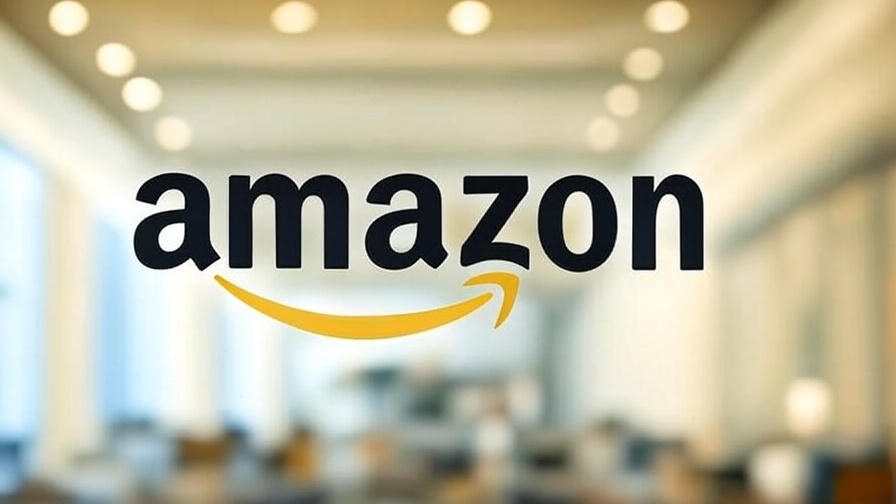Amazon, a name synonymous with online shopping, has transformed from a small bookstore to a global powerhouse in just a few decades. Founded in 1994 by Jeff Bezos, this company has redefined retail, technology, and even cloud computing. This blog article dives deep into Amazon’s journey, exploring its history, business model, innovations, challenges, and lasting impact. Written in a simple and engaging way for all audiences, this case study provides a detailed look at how Amazon became a leader and what it means for the future of business. Let’s embark on this fascinating journey!
𝗧𝗵𝗲 𝗕𝗲𝗴𝗶𝗻𝗻𝗶𝗻𝗴: 𝗔 𝗩𝗶𝘀𝗶𝗼𝗻 𝗳𝗿𝗼𝗺 𝗮 𝗚𝗮𝗿𝗮𝗴𝗲
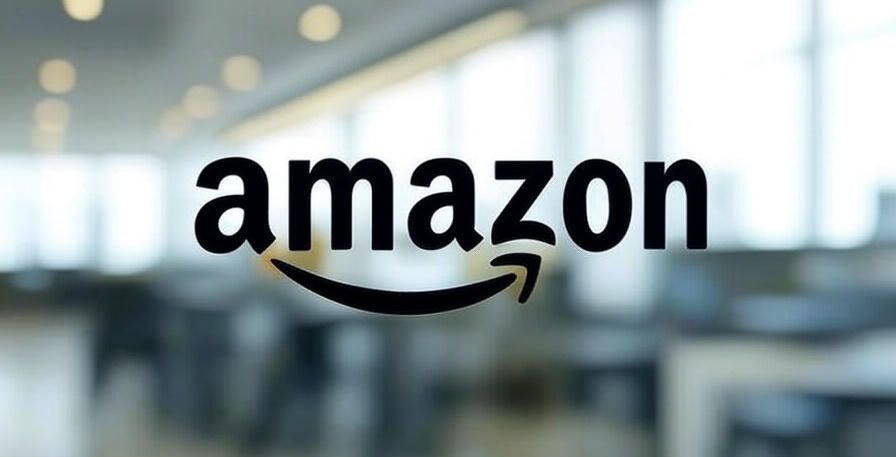
Amazon’s story began in 1994 when Jeff Bezos, a former Wall Street executive, identified the internet’s potential for retail. Living in a garage in Bellevue, Washington, Bezos started the company as an online bookstore called “Cadabra” (later changed to Amazon after a lawyer misheard it as “cadaver”). The name “Amazon” was inspired by the world’s largest river, symbolizing his ambition for a vast business.
Launched on July 16, 1995, Amazon.com offered over one million book titles, a vast selection compared to physical stores. Customers ordered books online, and Amazon shipped them directly. The startup cost was modest—around $300,000, funded by Bezos and small investors. The company operated with a lean team, focusing on customer satisfaction and fast delivery. Within two months, Amazon was selling to all 50 US states and over 45 countries, proving the internet’s global reach.
Bezos’ strategy was clear: prioritize growth over profits. He reinvested earnings into expanding product lines, improving technology, and building infrastructure. This bold approach paid off, turning Amazon into a public company in 1997 with an initial stock price of $18 per share.
𝗧𝗵𝗲 𝗕𝘂𝘀𝗶𝗻𝗲𝘀𝘀 𝗠𝗼𝗱𝗲𝗹: 𝗖𝘂𝘀𝘁𝗼𝗺𝗲𝗿 𝗢𝗯𝘀𝗲𝘀𝘀𝗶𝗼𝗻 𝗮𝘁 𝗜𝘁𝘀 𝗖𝗼𝗿𝗲
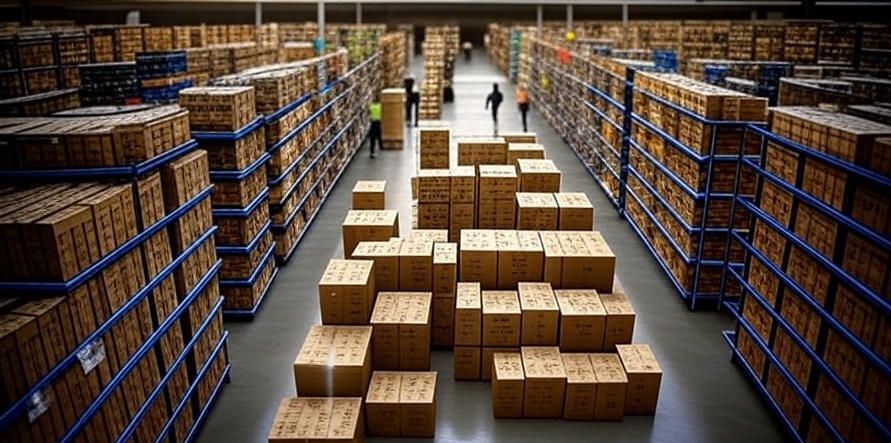
Amazon’s success hinges on a customer-centric business model. Unlike traditional retailers, Amazon focuses on convenience, variety, and low prices. Here’s how it works:
• Wide Product Range: Starting with books, Amazon expanded to electronics, clothing, groceries, and more. Today, it offers over 350 million products, including its own brands like Amazon Basics.
• Low Prices and Discounts: Amazon uses economies of scale and data analytics to keep prices competitive. Programs like Amazon Prime offer free shipping and exclusive deals for a yearly fee (currently around $139 in the US).
• Fast Delivery: With fulfillment centers across the globe, Amazon promises two-day or same-day delivery. The introduction of Amazon Prime in 2005 revolutionized expectations for shipping speed.
• Third-Party Sellers: Amazon Marketplace allows individuals and businesses to sell products, earning the company a commission (typically 15% per sale). This model boosted Amazon’s inventory and revenue.
• Technology Integration: From personalized recommendations to one-click purchasing, Amazon uses AI and machine learning to enhance the shopping experience.
This model isn’t just about selling goods—it’s about building a lifestyle. Amazon’s annual revenue exceeded $574 billion in 2023, with projections to grow further in 2025, showcasing its dominance.
𝗞𝗲𝘆 𝗜𝗻𝗻𝗼𝘃𝗮𝘁𝗶𝗼𝗻𝘀: 𝗣𝗶𝗼𝗻𝗲𝗲𝗿𝗶𝗻𝗴 𝘁𝗵𝗲 𝗙𝘂𝘁𝘂𝗿𝗲
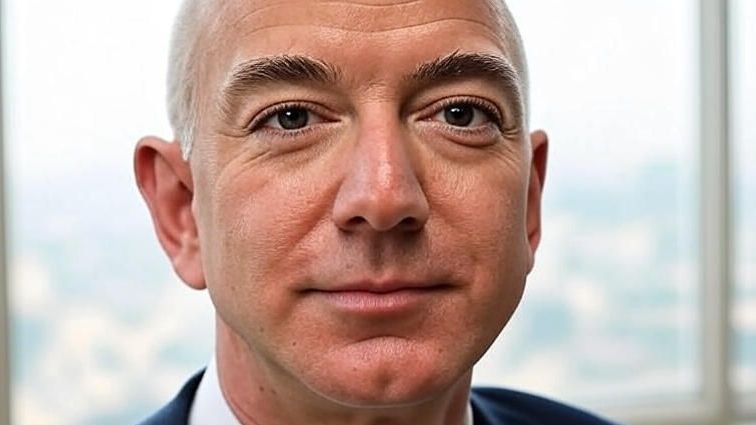
Amazon’s growth is tied to its relentless innovation. Here are the standout milestones:
• Amazon Web Services (AWS): Launched in 2006, AWS provides cloud computing services to businesses worldwide. It powers companies like Netflix and even government agencies. AWS generates over $80 billion annually, making it Amazon’s most profitable segment.
• Kindle E-reader: Introduced in 2007, the Kindle transformed reading by offering digital books. It paved the way for Amazon’s dominance in e-books, with millions of titles available.
• Amazon Prime: This subscription service, launched in 2005, offers free shipping, streaming (Prime Video), and music. With over 200 million members globally, it locks in customer loyalty.
• Alexa and Echo: The 2014 launch of Alexa, a voice-activated assistant, and Echo smart speakers brought AI into homes. Alexa powers smart home devices and handles tasks like shopping or playing music.
• Drone Delivery: Amazon’s Prime Air project aims to deliver packages via drones, testing this futuristic technology since 2016. While still in pilot phases, it promises delivery in 30 minutes or less.
• Sustainability Efforts: Amazon aims to be carbon neutral by 2040, with initiatives like Amazon Climate Pledge and electric delivery vans. This reflects growing consumer demand for eco-friendly practices.
These innovations haven’t just kept Amazon ahead—they’ve set industry standards, influencing competitors like Walmart and Alibaba.
𝗚𝗿𝗼𝘄𝘁𝗵 𝗮𝗻𝗱 𝗚𝗹𝗼𝗯𝗮𝗹 𝗘𝘅𝗽𝗮𝗻𝘀𝗶𝗼𝗻
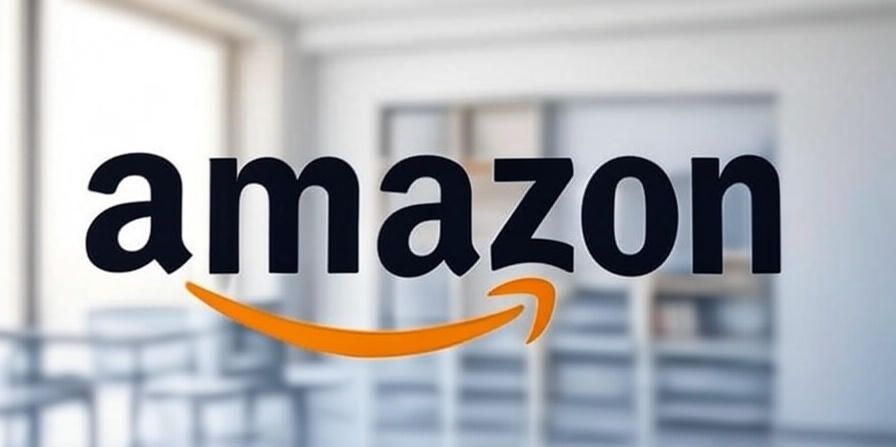
Amazon’s expansion is a tale of strategic moves. After conquering the US, it entered international markets, starting with the UK in 1998 and Germany in 1999. By 2025, Amazon operates in over 20 countries, including India, Japan, and Australia. Each market required adaptation—e.g., offering local language support and catering to regional tastes.
The acquisition of Whole Foods in 2017 for $13.7 billion marked Amazon’s entry into physical retail. This move allowed it to compete in groceries and test technologies like cashier-less stores (Amazon Go). The company also invested heavily in logistics, building over 175 fulfillment centers in the US alone by 2023.
Amazon’s workforce grew from 10 employees in 1995 to over 1.5 million globally by 2023. This scale supports its ability to handle peak seasons like Black Friday and Prime Day, which generated $14.2 billion in sales in 2023.
𝗖𝗵𝗮𝗹𝗹𝗲𝗻𝗴𝗲𝘀 𝗮𝗻𝗱 𝗖𝗼𝗻𝘁𝗿𝗼𝘃𝗲𝗿𝘀𝗶𝗲𝘀
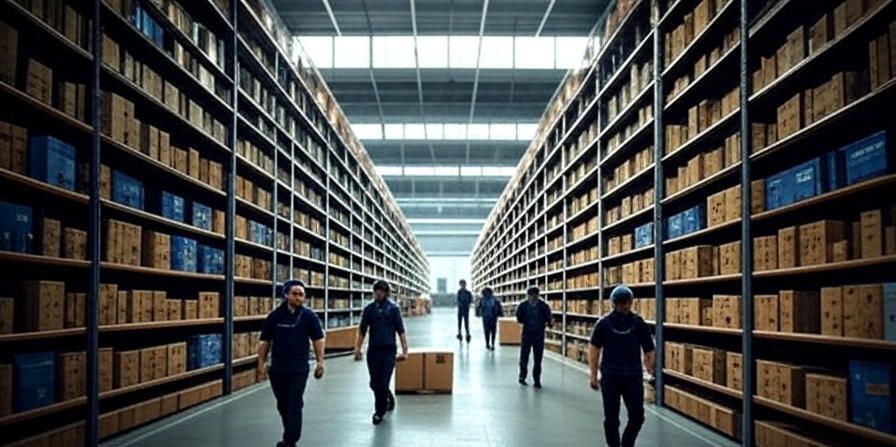
Despite its success, Amazon faces hurdles. Here are the key challenges:
• Labor Issues: Reports of poor working conditions in warehouses, including long hours and injury rates, have drawn criticism. In 2022, Amazon faced strikes during peak seasons, pushing it to improve wages (now starting at $18/hour in the US).
• Antitrust Scrutiny: Regulators in the US and Europe question Amazon’s dominance, alleging it uses data from third-party sellers to favor its products. In 2021, the US Federal Trade Commission filed a lawsuit against Amazon, ongoing as of 2025.
• Environmental Impact: While pursuing sustainability, Amazon’s massive shipping network contributes to carbon emissions. Critics argue its goals are too slow, though its 2023 investment of $2.6 billion in renewable energy counters this.
• Competition: Rivals like Walmart, eBay, and Shopify challenge Amazon’s e-commerce lead. Walmart’s focus on in-store pickup and Shopify’s seller-friendly platform pose threats.
Amazon addresses these by enhancing worker benefits, lobbying for fair regulations, and accelerating green initiatives. However, balancing growth with ethics remains a tightrope walk.
𝗖𝘂𝗹𝘁𝘂𝗿𝗮𝗹 𝗜𝗺𝗽𝗮𝗰𝘁: 𝗠𝗼𝗿𝗲 𝗧𝗵𝗮𝗻 𝗝𝘂𝘀𝘁 𝗦𝗵𝗼𝗽𝗽𝗶𝗻𝗴
Amazon has shaped modern culture in profound ways:
• Shopping Habits: Online shopping became mainstream thanks to Amazon. In 2023, 64% of US consumers started their product searches on Amazon.
• Entertainment: Prime Video competes with Netflix, offering hits like The Marvelous Mrs. Maisel. Amazon Studios’ $8.5 billion budget in 2023 underscores its entertainment ambitions.
• Work Culture: The term “Amazonian” describes its intense, data-driven work environment, influencing corporate cultures worldwide.
• Economic Influence: Amazon creates jobs but also disrupts local retailers, sparking debates about its role in communities.
This cultural shift has made Amazon a household name, with its logo recognized globally.
𝗙𝗶𝗻𝗮𝗻𝗰𝗶𝗮𝗹 𝗣𝗲𝗿𝗳𝗼𝗿𝗺𝗮𝗻𝗰𝗲: 𝗔 𝗠𝗼𝗻𝗲𝘆-𝗠𝗮𝗸𝗶𝗻𝗴 𝗠𝗮𝗰𝗵𝗶𝗻𝗲
Amazon’s financial growth is staggering. From a $15.7 million revenue in 1996, it reached $574 billion in 2023. Net income hit $30 billion in 2023, driven by AWS and e-commerce. Its stock price soared from $18 in 1997 to over $180 by mid-2025, making Bezos one of the world’s richest individuals (though he stepped down as CEO in 2021, handing the role to Andy Jassy).
Investors love Amazon’s reinvestment strategy, which funds new ventures like healthcare (Amazon Pharmacy) and logistics. However, its high spending (e.g., $67 billion in 2023) keeps profit margins slim compared to traditional retailers.
𝗧𝗵𝗲 𝗙𝘂𝘁𝘂𝗿𝗲: 𝗪𝗵𝗮𝘁’𝘀 𝗡𝗲𝘅𝘁 𝗳𝗼𝗿 𝗔𝗺𝗮𝘇𝗼𝗻?
As of June 2025, Amazon is poised for more growth. Here are key trends:
• AI Expansion: Amazon is integrating AI deeper into Alexa, AWS, and logistics, aiming to personalize experiences further.
• Healthcare Push: Amazon Pharmacy and partnerships with hospitals signal a move into healthcare, a $4 trillion US market.
• Global Reach: Emerging markets like Africa and Southeast Asia are next targets, with tailored services.
• Sustainability Goals: Achieving carbon neutrality by 2040 remains a priority, with new electric delivery fleets rolling out.
Challenges like regulation and competition will test Amazon, but its adaptability suggests it will remain a leader.
𝗟𝗲𝘀𝘀𝗼𝗻𝘀 𝗳𝗿𝗼𝗺 𝗔𝗺𝗮𝘇𝗼𝗻’𝘀 𝗝𝗼𝘂𝗿𝗻𝗲𝘆
Amazon’s story offers valuable lessons for entrepreneurs:
• Think Big: Start small but dream big, like Bezos did with his garage venture.
• Customer First: Obsess over customer needs to build loyalty.
• Innovate Constantly: Stay ahead by embracing new technologies.
• Take Risks: Reinvesting profits fueled Amazon’s growth, despite early losses.
• Adapt Globally: Tailor strategies to local markets for success.
These principles apply to any business, from startups to established firms.
𝗖𝗼𝗻𝗰𝗹𝘂𝘀𝗶𝗼𝗻: 𝗔 𝗟𝗲𝗴𝗮𝗰𝘆 𝗶𝗻 𝗣𝗿𝗼𝗴𝗿𝗲𝘀𝘀
Amazon’s journey from a garage bookstore to a trillion-dollar company is a testament to vision, innovation, and resilience. It has revolutionized retail, entertainment, and technology, while facing and addressing significant challenges. As of June 28, 2025, Amazon continues to evolve, shaping the future of commerce and beyond.For consumers, it offers unmatched convenience.
For businesses, it’s a model of scalability. For the world, it’s a case study in balancing profit with responsibility. Whether you’re an aspiring entrepreneur or a curious reader, Amazon’s story inspires and informs. What will its next chapter bring? Only time will tell, but one thing is certain—Amazon’s impact will endure.

